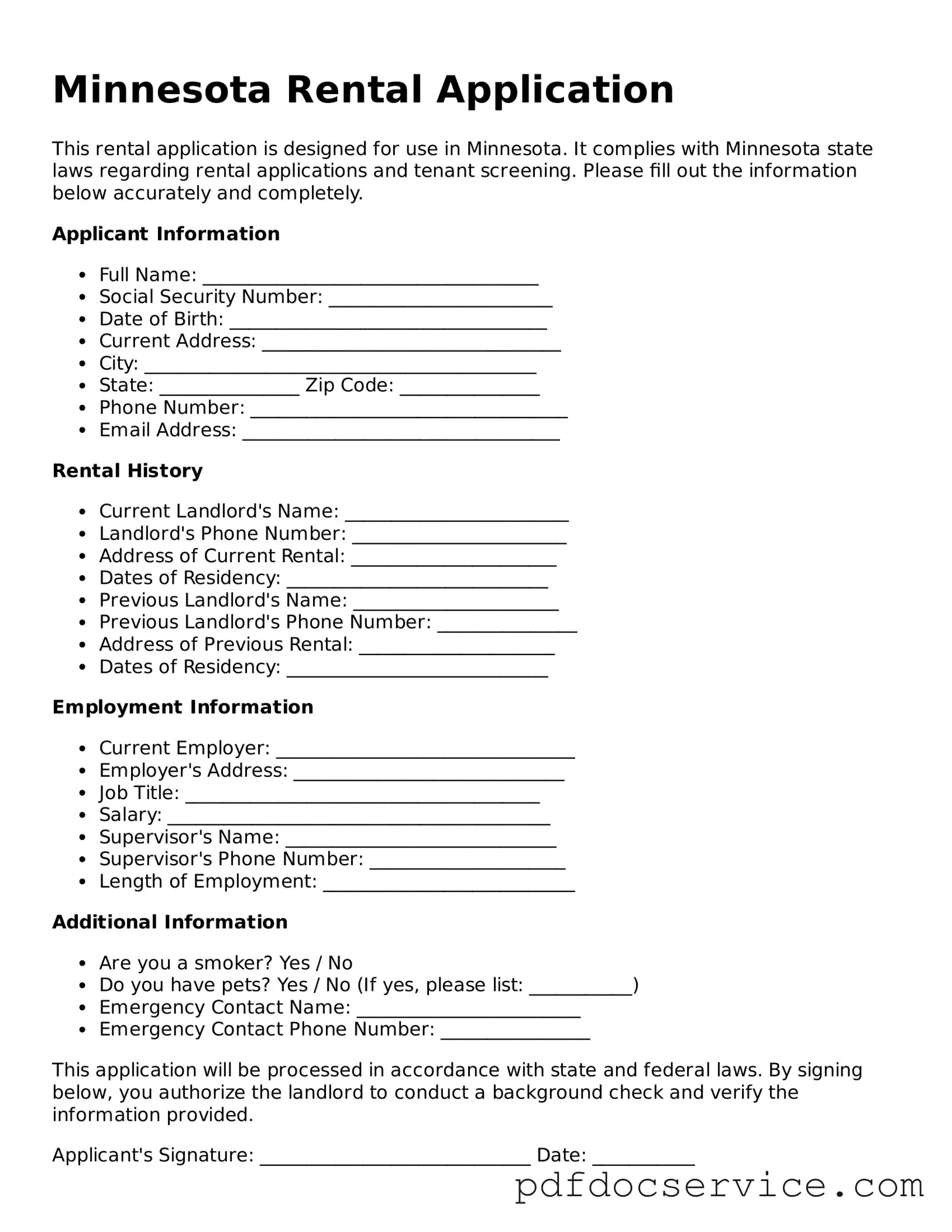The Minnesota Rental Application form is a document used by landlords and property managers to collect important information from potential tenants. This form typically includes sections for personal information, rental history, employment details, and references. By completing this form, applicants provide landlords with the necessary information to assess their suitability for renting a property.
When filling out the Minnesota Rental Application form, applicants generally need to provide:
-
Personal information, such as full name, address, and contact details.
-
Social Security number or other identification numbers.
-
Rental history, including previous addresses and landlord contact information.
-
Employment information, such as employer name, job title, and income details.
-
References from previous landlords or personal contacts.
Some landlords may also request additional information, such as consent for background checks or credit reports.
Is there a fee to submit the rental application?
Many landlords charge an application fee to cover the costs of processing the application, conducting background checks, and verifying information. The amount of the fee can vary significantly depending on the landlord or property management company. It is important to ask about any fees upfront before submitting the application.
How long does it take to process the application?
The processing time for a rental application can vary. Typically, landlords aim to review applications within a few days. Factors that may influence the timeline include the number of applications received, the thoroughness of the background checks, and the responsiveness of previous landlords or employers when contacted for references. Applicants should feel free to inquire about the expected timeline during the application process.
What happens if my application is denied?
If a rental application is denied, landlords are usually required to provide a reason for the denial. Common reasons include poor credit history, insufficient income, or negative rental history. If the application is denied based on a credit report, landlords must provide the applicant with information about the reporting agency used and their rights under the Fair Credit Reporting Act. Applicants can request a copy of the report to understand the basis for the denial.
Can I appeal a denial of my rental application?
While there is no formal appeal process for rental applications, applicants can take steps to address the reasons for denial. It may be beneficial to communicate directly with the landlord or property manager to discuss the denial. If the issue is related to credit history or rental references, providing additional documentation or explaining circumstances may help. Some landlords may be willing to reconsider an application if new information is presented.

